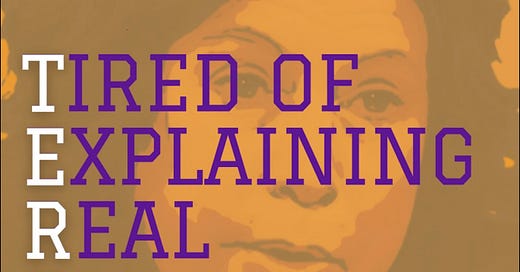October 12, 2024
This post is being sent to all subscribers to this Substack. It is free and shareable. If you are not a paid subscriber and would like access to content that delves deeper into the movement to protect the sex-based rights of women and girls and to stop the abolition of sex, please consider becoming one today.
Yesterday, the US chapter of Women’s Declaration International announced the filing of a friend of the court brief before the U.S. Supreme Court in a case called United States v. Skrmetti.
According to its website, at issue is a Tennessee ban on the medicalization of children (often referred to by the euphemism “gender affirming care”). The organization had previously filed a similar brief in the same case before the Sixth Circuit Court of Appeals.
WDI USA has filed amicus briefs before the Supreme Court before, but the previous briefs only concerned the question of whether the Court should take up a case. This is the first time WDI USA has presented the radical feminist critique of “gender identity” before the Supreme Court directly.
It argues:
The word “transgender” is a linguistic sleight of hand that cannot be protected legally as a quasi-suspect class under equal protection analysis because it has no coherent meaning, is not an immutable trait, and does not describe a politically powerless group of people.
Children have an international human right to grow into adulthood and to be protected from the physical and psychological harms that result from blocking puberty and/or administering opposite-sex hormones.
Sex is grounded in material reality, whereas “gender” (including linguistic derivatives like “gender identity,” “transgender” and “cisgender”) is grounded in regressive sexist stereotypes.
From the brief:
The American Civil Liberties Union (ACLU), which represents the [original plaintiffs] in this matter, defines the term “transgender” to mean “a broad range of identities and experiences that fall outside of the traditional understanding of gender.” It continues: “Some of those identities and experiences include people whose gender identity is different from the sex they were assigned at birth, people who transition from living as one gender to another or wish to do so (often described by the clinical term ‘transsexual’), people who ‘cross-dress’ part of the time, and people who identify outside the traditional gender binary (meaning they identify as something other than male or female). Some transgender people describe themselves as gender variant or gender nonconforming. Not everyone who doesn’t conform to gender stereotypes, however, identifies as transgender. Many people don’t conform to gender stereotypes but also continue to identify with the gender assigned to them at birth, like butch women or femme men.” It would defy reason to establish a quasi-suspect class of such people for equal protection purposes, and this Court ought not want to be the Court that establishes such a classification for a group of people that, at least according to the ACLU, includes part-time cross-dressers.




“ . . . this Court ought not want to be the Court that establishes such a classification for a group of people that, at least according to the ACLU, includes part-time cross-dressers.” Brava, team WDI, and may sanity prevail!
I'm glad we finally got some substantive terms to use, "the clinical term transsexual" and "part-time cross dressers." So... a "part time cross dresser" is allowed to benefit from women's rights to help with their mental disorder? I hope this is the beginning of the end of this hyper- misogynist movement.